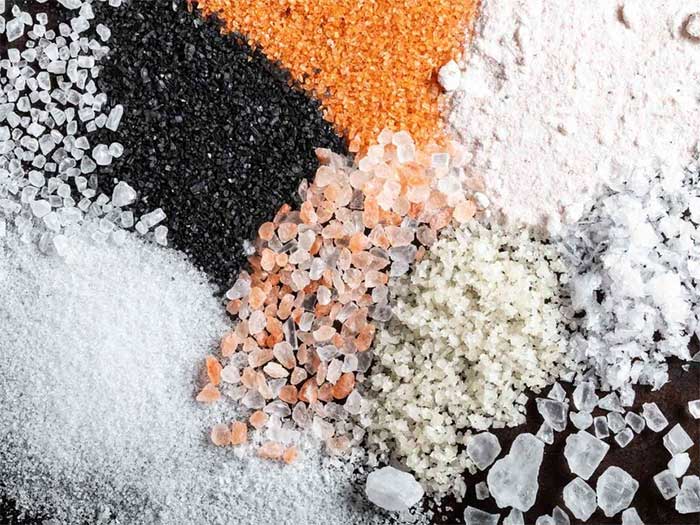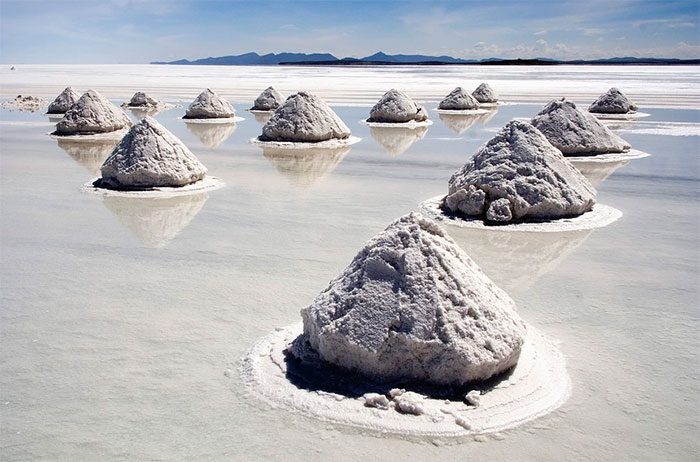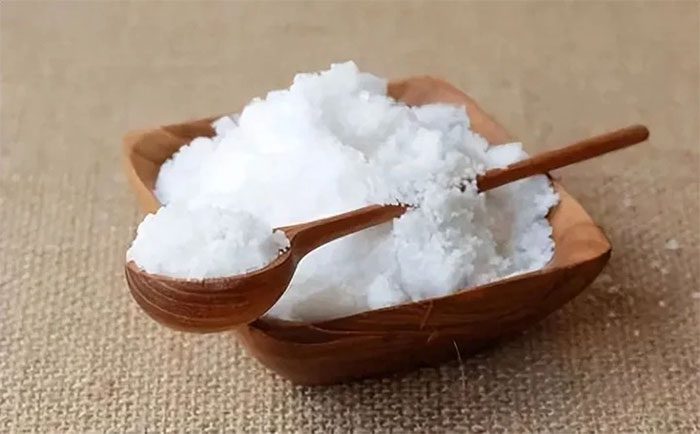This issue has garnered significant attention from scientists, who have discovered a surprising phenomenon that could change our understanding of salt.
The Important Role of Salt in Ancient Societies
Salt is an essential seasoning in our daily lives, but did you know that it played a critical role in ancient societies? From ancient times, salt was regarded as a precious commodity.
Before the advent of refrigeration and preservation technology, people needed to store and extend the shelf life of food through salting. All that was required for this process was salt.

Whether for cooking, seasoning, or maintaining good health, salt is an essential part of your diet. Simultaneously, salt has evolved into a cultural symbol; for instance, during celebrations worldwide, it is often used as a symbol of good luck.
In addition to its role as a food seasoning and an essential ingredient in preservation, salt also had other important uses in ancient society. It was widely used in pharmaceutical preparations. In ancient times, salt was commonly used to process herbs and medicinal remedies. Rich in minerals and trace elements, salt could enhance the effectiveness of medicines. At the same time, salt was used as a disinfectant to clean wounds and prevent infections.
In ancient times, the scarcity of salt made it a highly valuable commodity. It was often used as a medium of exchange and trade. As a result, the value of salt increased, becoming a form of currency that met the basic needs of the people.

Salt played an important role in ancient societies, influencing dietary habits, medicine preparation, trade, sanitation, and food preservation. Although modern society has developed many technologies and new methods, salt remains an indispensable part of human life.
The above are just a few applications of salt in ancient society; it has many other uses as well. However, with the development of society and advancements in science and technology, the status of salt has diminished. Modern humans have many more food options and preservation methods, leading to a gradual decrease in dependence on salt.
The Effects of Salt on Human Health
Eating less salt is a healthy eating habit because consuming too much salt can negatively affect human health. However, excessively limiting salt intake can also have adverse effects on a person’s physical health.

The body needs adequate sodium to ensure normal muscle contraction and nerve transmission. If your sodium levels are too low, it can lead to muscle dysfunction, weakness, and fatigue. This is particularly important for individuals engaged in strenuous physical activities for extended periods, such as athletes and manual laborers.
Salt is a compound made of sodium and chlorine and is crucial for maintaining normal body functions. Sodium ions in the body are key to maintaining normal balance levels inside and outside of cells and regulating blood pressure. The difference in sodium ion concentrations inside and outside cells determines water transport and maintains fluid balance in the body. Therefore, salt plays a crucial role in the body.
When we consume too much salt, the concentration of sodium ions in the body increases, resulting in excess bodily fluids and edema. Edema increases the load on the heart and blood vessels, leading to increased blood pressure. Long-term high blood pressure can increase the risk of heart disease, stroke, and other cardiovascular diseases. Thus, limiting excessive salt intake is vital for preventing and controlling these conditions.

To ensure good health, we can reasonably control our salt intake through the following methods. Avoid consuming too many processed foods as they often contain high amounts of salt.
When we lose a lot of water, such as during strenuous exercise or diarrhea, the amount of sodium ions lost from the body also increases. If salt intake is too low, the body cannot replenish enough sodium ions, which may lead to dehydration, electrolyte imbalances, and symptoms like fatigue, dizziness, and low energy. This is why it is said that eating less salt can lead to muscle weakness.
However, this does not mean we should consume large amounts of salt to increase endurance. According to the World Health Organization’s recommendations, adults should not consume more than 5 grams of salt per day. This provides the body with the necessary sodium while reducing the risk of cardiovascular diseases and other related conditions.

Eating less salt aims to protect the body from health issues like cardiovascular disease, but excessively limiting salt intake can negatively impact a person’s physical fitness. Properly controlling salt intake is key to maintaining good health and strength.
While salt plays an important role in adding flavor to our diets, consuming too much salt can have negative health effects. To maintain a balance between salt intake and excretion, we should choose low-sodium foods, reduce salt usage, avoid high-salt foods, try low-sodium spices, increase vegetable and fruit consumption, gradually reduce salt use, and maintain adequate fluid intake. These measures can help us avoid the negative impacts of salt and sustain a healthy lifestyle.




















































